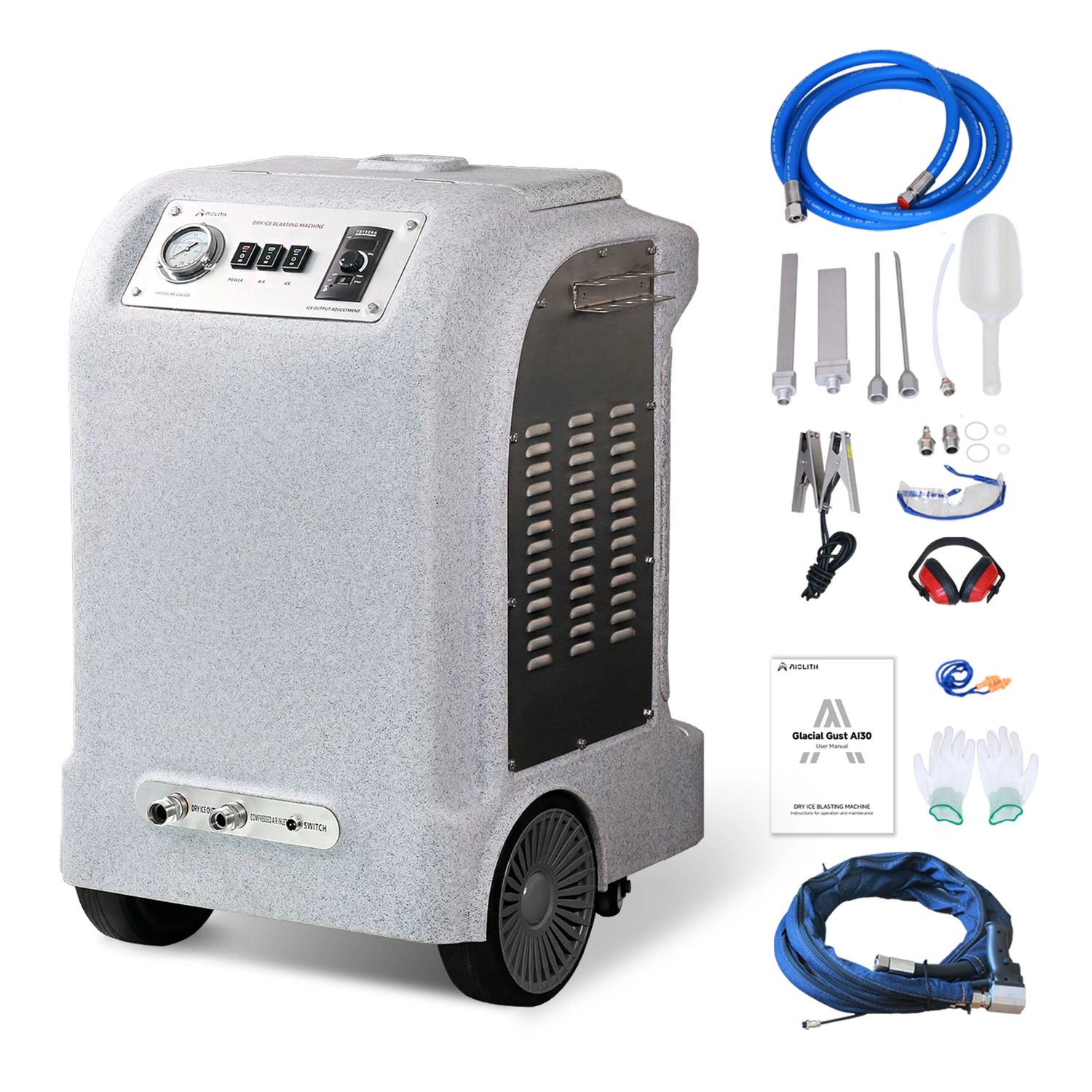7 Key Factors to Consider When Choosing a Floor Scrubber for Commercial Cleaning
Share
Choosing the right floor scrubber is crucial for maintaining clean, safe, and efficient commercial spaces.
With so many models available, making the right choice can seem overwhelming. Commercial floor scrubbers reduce labor, improve sanitation, and ensure consistent results. Below, we outline 7 critical considerations to guide your selection, including features, cleaning requirements, and performance metrics.
1. Determine Floor Type and Surface
Different floors require different cleaning intensity. Tile, concrete, hardwood, and vinyl respond uniquely to water, brushes, and scrubbing pads. Using the correct setting prevents damage and ensures effective cleaning (Rutala & Weber, 2019).
2. Cleaning Area Size
Consider the square footage. Large areas benefit from ride-on or walk-behind scrubbers with larger solution tanks. Smaller facilities may use compact models to navigate tight spaces efficiently. Clark (2021) highlights that machine capacity and coverage affect operational efficiency.
3. Water and Solution Management
Effective floor scrubbers separate clean and dirty water, reducing cross-contamination. Proper water recovery ensures floors dry quickly, minimizing slip hazards (CDC, 2019). AIOLITH scrubbers are designed for efficient solution dispensing and recovery, reducing labor time and improving hygiene (source).
4. Battery Life and Power Source
Battery-powered scrubbers offer mobility and flexibility. Longer battery life ensures uninterrupted cleaning of large commercial spaces. For heavy-duty tasks, models with extended run times are preferred. Research confirms that reliable power enhances productivity in commercial cleaning (Otter et al., 2013).
5. Brush Type and Scrubbing Pressure
Brush types include cylindrical, disk, and combination pads. The choice affects cleaning depth and floor safety. Adjustable scrubbing pressure helps maintain floor integrity while removing dirt effectively (Kampf, 2018).
6. Ergonomics and Ease of Use
Operators spend hours using these machines. Features like adjustable handles, intuitive controls, and lightweight design reduce fatigue and improve cleaning consistency. NHS (2021) emphasizes ergonomics to prevent workplace strain in janitorial staff.
7. Maintenance and Cost Efficiency
Regular maintenance ensures machine longevity and optimal performance. Check for easy-to-clean tanks, accessible brushes, and available replacement parts. Cost analysis should include energy usage, cleaning solution consumption, and labor savings (EPA, 2021).
Comparison Table: Key Features of Floor Scrubbers
| Feature | Manual Mopping | Commercial Floor Scrubber |
|---|---|---|
| Cleaning Depth | Surface-level cleaning | Deep cleaning with adjustable pressure |
| Labor Requirement | High, repetitive | Reduced, efficient operation |
| Water Usage | High, risk of contamination | Efficient clean/dirty water separation |
| Drying Time | Slow, residual moisture | Quick drying with squeegee recovery |
| Coverage Area | Small to medium | Large areas with extended run-time |
| Floor Compatibility | Limited by technique | Adjustable for different surfaces |
| Maintenance | Low-tech, manual | Requires periodic upkeep but extends lifespan |
FAQs
Q1: How do I know which floor scrubber suits my facility?
Consider floor type, area size, traffic, and cleaning requirements before selecting a model.
Q2: Are AIOLITH scrubbers suitable for all commercial floors?
Yes, they are designed with adjustable brushes and pressure for tiles, concrete, and vinyl (source).
Q3: How often should commercial floor scrubbers be maintained?
Check tanks, brushes, and batteries weekly, with deeper maintenance monthly, to ensure efficiency.
Q4: Can floor scrubbers replace mopping completely?
For large areas and deep cleaning, yes. Mopping may still be used for spot cleaning or touch-ups.
Q5: Do floor scrubbers reduce labor costs?
Yes, automation reduces time and effort, increasing productivity and lowering operational costs.
Conclusion
Selecting the right floor scrubber improves cleanliness, efficiency, and workplace safety. Consider factors like floor type, area size, water management, brush type, battery life, ergonomics, and maintenance. Using commercial machines like AIOLITH floor scrubbers ensures consistent, high-quality results while minimizing labor. Proper choice guarantees hygienic, safe, and polished floors for any commercial facility.
References
- CDC. (2019). Cleaning and Disinfecting Your Facility. https://www.cdc.gov/hygiene/cleaning/index.html
- EPA. (2021). Cleaning vs. Disinfecting vs. Sanitizing. https://www.epa.gov/coronavirus/cleaning-and-disinfecting-your-home
- Otter, J. A., Yezli, S., & French, G. L. (2013). Evidence that cleaning reduces infection spread in hospitals. Journal of Hospital Infection, 85(2), 99–105. https://doi.org/10.1016/j.jhin.2013.04.007
- Rutala, W. A., & Weber, D. J. (2019). Best practices for disinfection of environmental surfaces. Am J Infect Control, 47, A96–A105. https://doi.org/10.1016/j.ajic.2019.01.014
- Kampf, G. (2018). Effect of frequent cleaning on microbial load. GMS Hygiene and Infection Control, 13. https://doi.org/10.3205/dgkh000307
- NHS. (2021). Prevent germs from spreading. https://www.nhs.uk/live-well/healthy-body/how-to-prevent-germs-from-spreading/
- AIOLITH. Floor Scrubbers. https://www.aiolith.com/pages/floor-scrubbers


